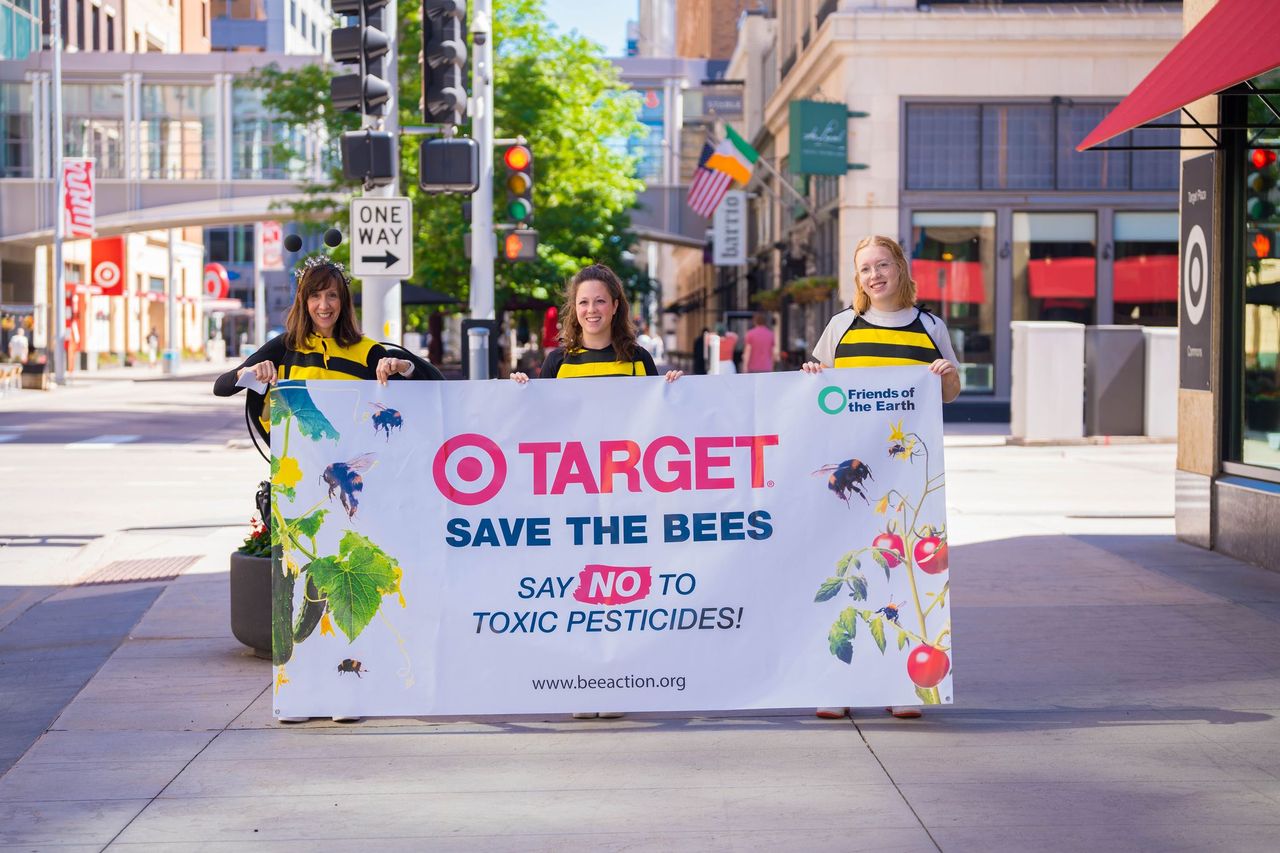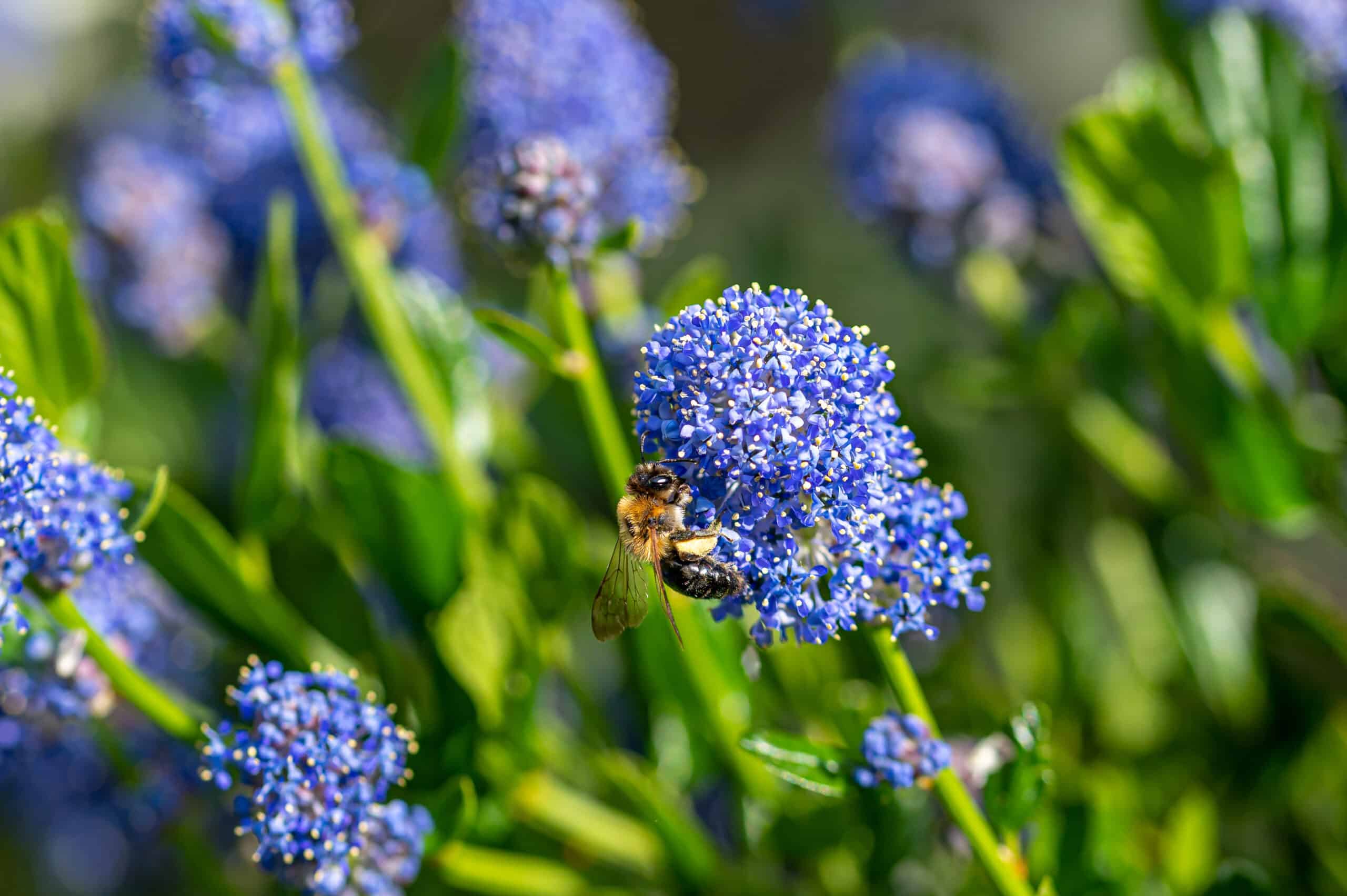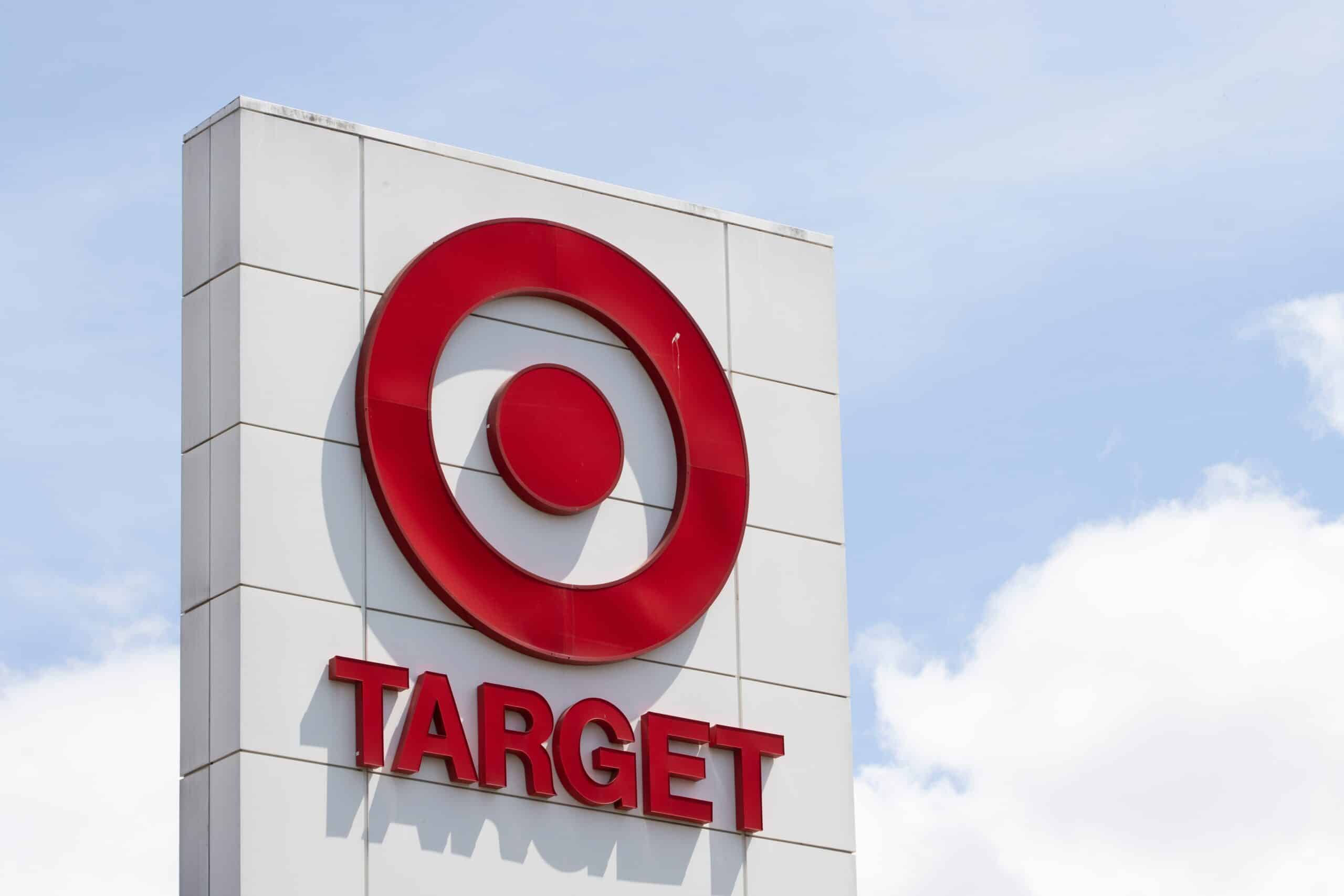
Target: Save the Bees
Target: Save the Bees
After years of pressure from Friends of the Earth and allies, Kroger announced a new biodiversity policy aimed at reducing toxic pesticides in its fresh produce supply chain. Now, on the heels of the Kroger victory, we’re turning to another food retailer that must act to protect bees and biodiversity: Target.
Target is one of the largest grocery retailers in the United States. With nearly 2,000 stores across the country and nearly $24 billion in annual food and beverage sales, Target plays a major role in shaping our food system. Friends of the Earth and allies are calling on Target to protect pollinators, people, and the planet from toxic pesticides. Target could be a huge part of the solution if it commits to phasing out key pesticides — including neonicotinoids, glyphosate, and organophosphates — supporting suppliers to transition to ecological farming methods, and increasing organic foods, which are safer for pollinators, human health, and the environment.

We found toxic pesticides in Target’s baby food
We found a total of 29 pesticides in Target’s pear and apple baby food.
Of those, 16 are classified as highly hazardous, 10 are banned in the European Union, 8 are linked to hormone disruption, and 6 are linked to cancer.
Help Save The Bees
The bee crisis requires immediate action, not just aspirations. Target took a first step to protect pollinators by releasing a pollinator health policy — but now, it’s falling behind its competitors. Target’s policy doesn’t include any measurable, time-bound commitments to eliminate bee-toxic pesticides from its food supply chain or to help farmers shift to ecological farming practices that protect pollinators.
As one of the nation’s leading grocery retailers, it’s important that Target shows leadership in making its food supply safer for farmers, farmworkers, consumers, and pollinators. It’s time for Target to step up and save the bees — but the company won’t act unless it feels pressure from people like you. We need your voice to join the chorus of consumers calling for change!
Media
Ways to Support Our Work

Read Latest News
Stay informed and inspired. Read our latest press releases to see how we’re making a difference for the planet.

See Our Impact
See the real wins your support made possible. Read about the campaign wins we’ve fought for and won together.

Donate Today
Help power change. It takes support from environmental champions like you to build a more healthy and just world.


